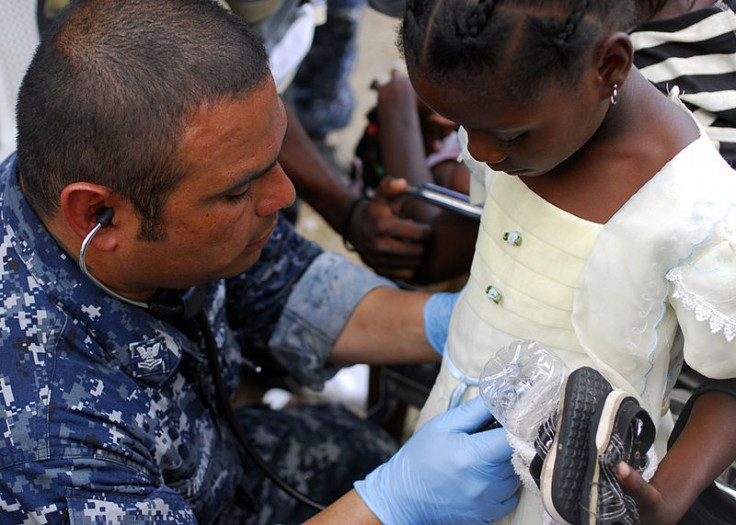Children With Stomachaches Found Predisposed To Social Anxiety As Adults; What Can Trigger Social Anxiety In Children?

If you find your children tightly grasping their abdominals with both hands wrapped around their belly, they are most likely experiencing stomach pain. While hearing the phrase “my stomach hurts” from your children is common during their adolescent years, stomach pain that is on and off and lasts longer than two months is a sign of a more serious medical condition. Functional abdominal pain (FAP) is a common disorder that affects one out of five children and adolescents worldwide, says the Texas Children’s Blog, a blog designed by medical experts to give pediatric health advice. FAP commonly occurs in boys and girls between the ages of five and 10 years old, and accounts for approximately four percent of all pediatric office visits in the U.S. Chronic stomach pain can affect your child's quality of life and, because it is a multifactorial condition, can even leave them predisposed to social anxiety well into adulthood.
FAP And Social Anxiety
Children who have stomachaches much more frequently than their peers can be suffering from infection, constipation, or another serious medical condition. The University of Michigan Health System says that if your child is experiencing reoccurring abdominal pain, he or she could be dealing with stress or anxiety. Children may distance themselves from participating in regular activities and even miss school on numerous occasions because of the severity of the pain.
When there is no medical explanation for the chronic or reoccurring stomach pain in children, researchers from the Vanderbilt University School of Medicine have found this condition to be a linked to anxiety. Findings published in the journal of Pediatrics suggest that these children are at a higher-than-average risk of developing anxiety disorders during their adolescence and into their adulthood. The participants of the study included 332 children who went to their pediatricians for unknown chronic stomach pain between the ages of eight and 17. Researchers also included 147 children from nearby schools who did not have stomach problems as the control group of the study. The results of the study showed that when the participants reached age 20, 51 percent of those with stomachaches during their childhood had experienced an anxiety disorder, and 30 percent were found to meet the criteria for a diagnosis of the disorder. Meanwhile, only 12 percent of those who did not suffer from stomach pain had an anxiety disorder.
"What was striking was the extent to which anxiety disorders were still present at follow-up," said Lynn Walker, researcher of the study, to Reuters Health.
Read more: Scared of Needles? Meet MEDi, The Talking Robot That Helps Kids With Needle Anxiety
FAP Symptoms
The symptoms of this childhood condition should be monitored to determine if there is a medical explanation as to why your child has chronic stomach pains. According to Patient.co.UK, you should look the following symptoms in your child:
-Involuntary weight loss
-Deceleration of linear growth
-Gastrointestinal blood loss
-Significant vomiting
-Chronic severe diarrhea
-Unexplained fever
-Persistent right upper or right lower quadrant pain
-Family history of inflammatory bowel disease
FAP Treatment
FAP treatment is more about helping children gain control over their symptoms and improving their way of life, rather than completely eliminating their symptoms. The North Carolina School of Medicine says that there is no available treatment that can eliminate the symptoms, but identifying the emotional and situational triggers can help regulate the severity of the symptoms.
-Keep a diary to record symptom flare-ups and to identify possible triggers.
-Antidepressants may be prescribed by your child’s pediatrician for severe abdominal pain.
-Breathing techniques for muscle relaxation and autogenic relaxation
-Self-hypnosis
Read more: Kava Effective In Treating Anxiety Disorders
Triggers Of Social Anxiety In Children
Children with FAP are at higher risk of developing a social anxiety disorder during their adolescence and well into their adulthood, according to the recent study. While it may prove difficult to tell the difference between a child's shyness and social anxiety, there are some telltale signs to help you. Children with social anxiety often experience distress over daily activities, socializing with other children, and participating in class activities and assignments. Extreme cases of social phobia will often involve children relentlessly not wanting to go to school.
Triggers of social anxiety in children include but are not limited to:
-Teasing
-Bullying
-Rejection
-Ridicule or humiliation
-Family conflict
-Sexual abuse
For ways on how to cope with your child’s chronic stomach pain, visit the University of Michigan Health System’s website.



























